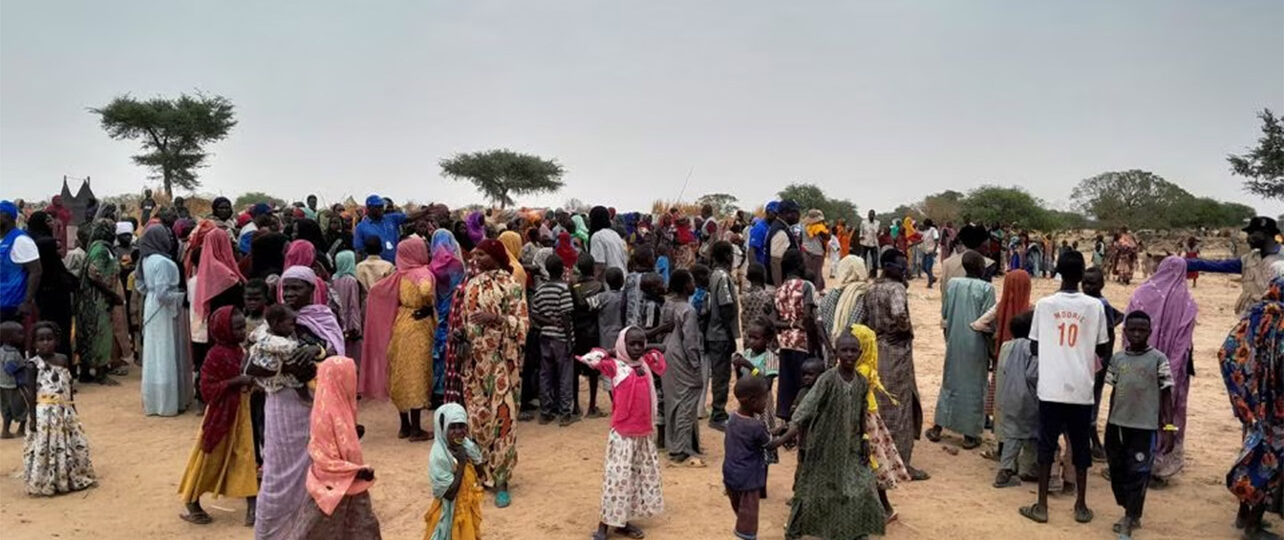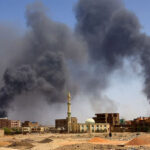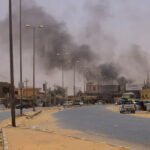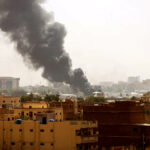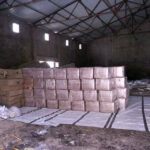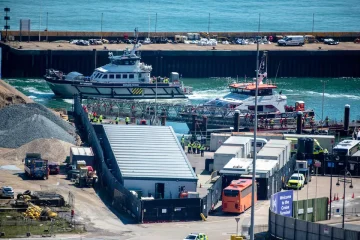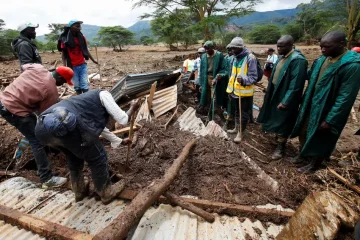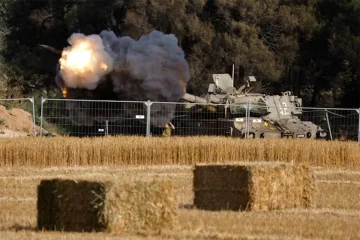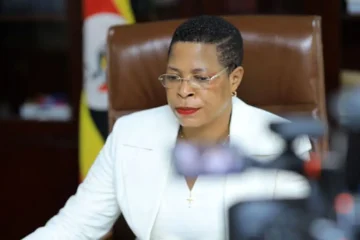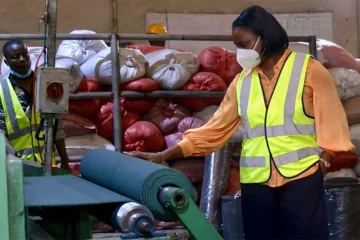[tta_listen_btn listen_text=”Audio” pause_text=”Pause” resume_text=”Resume” replay_text=”Replay”]
HEAVY clashes broke out between rival military factions in several parts of Sudan’s capital as a 72-hour ceasefire that saw several reports of violations expired, witnesses said.
Shortly before the truce ended at 6 a.m. (0400 GMT) fighting was reported in all three of the cities that make up the wider capital around the confluence of the Nile: Khartoum, Bahri and Omdurman.
Sudan’s army and the paramilitary Rapid Support Forces (RSF) have been battling each other for more than two months, wreaking destruction on the capital, triggering widespread violence in the western region of Darfur and causing more than 2.5 million people to flee their homes.
Attacks by militias linked to the RSF in the western city of El Geneina have been described by local and foreign observers as ethnic cleansing.
Witnesses said army aircraft carried out air strikes in Bahri and the RSF responded with anti-aircraft fire. Smoke could be seen rising from the industrial area.
Witnesses also reported artillery fire and heavy clashes in Omdurman and ground fighting in southern Khartoum.
Residents also reported clashes near the army headquarters in the city of Dalanj in South Kordofan, where the SPLM-N led by Abdelaziz al-Hilu, a large rebel force that is not clearly aligned with either of the factions, has been mobilising.
The RSF also attacked a separate army camp in another part of the city on Wednesday, witnesses said.
The ceasefire was the latest of several truce deals brokered by Saudi Arabia and the United States at talks in Jeddah.
As with previous ceasefires, there were reports of violations by both sides.
Late on Tuesday, both factions blamed the other for a large fire at the intelligence headquarters, which is housed in a defence compound in central Khartoum that has been fought over since the fighting erupted on April 15.
Saudi Arabia and the U.S. said that if the warring factions failed to observe the ceasefire they would consider adjourning the Jeddah talks, which critics have questioned as ineffective.
The conflict in Sudan erupted amid disputes over internationally backed plans for a transition away from military rule following a coup in 2021 and four years after long-ruling autocrat Omar al-Bashir was ousted during a popular uprising.

